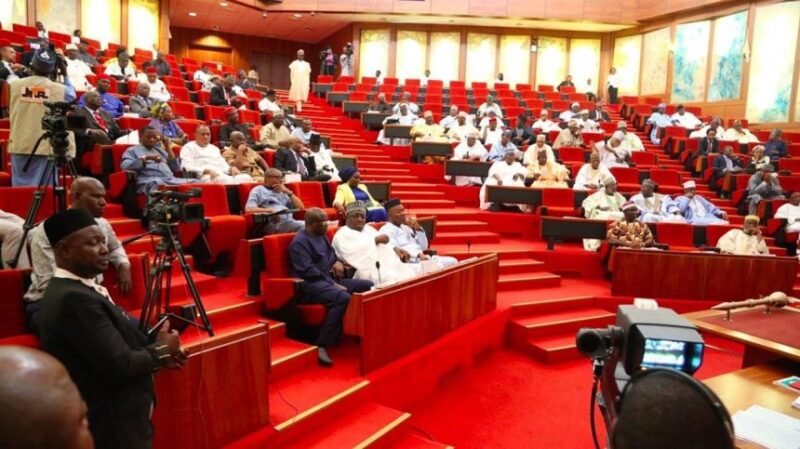Political Issues
13 years after PIB demons defeated and Why Passed PIB is Importance To The Nation -By Hon. Abdullahi Mahmud Gaya
At same times PIB assent by PMB will clear the concerns raised by investors and have greater clarity on the direction of the industry, especially with respect to the new fiscal rules and Nigeria’s oil and gas industry and Nigeria’s economy to witness an exponential growth soon. The bill also promote the competitive and liberalised downstream sector of the petroleum industry as well as the development of fuel and chemical industries.

The passage of the Petroleum Industry Bill (PIB) would remains a significant development in the Nigerian oil and gas sector. The bill would’ve become a major instrument of reform in the oil and gas sector, and also a big blessing for Nigeria.
The Nation’s oil industry is being governed by laws enacted more than 50 years ago which has extremely not conversant with current oil and gas reality. PIB signifies the focus of the Nigerian government in sanitising the sector and increasing investor confidence.
Even though a splinter Bill named the Petroleum Industry Governance Bill (PIGB), was passed in 2018 by the 8th National Assembly, but failed to receive the prerequisite Assent of the President of Nigeria and thus could not become law. As legislators, we strive hard to delivered a passed Bill that would enhance the growth of the nation’s oil and gas industry, modernize our financial system and enhance competitiveness, while creating harmony for all stakeholders.

Despite with challenges surrounding the future usefulness of petroleum resources and the increased level of uncertainty on oil demand call for great concern but the passed bill would overhaul the sector that has refused to operate optimally in line with global standards.
For all these years, non passage of the Bill remain a major drag on the petroleum industry, which has significantly limiting country potential to attract both local and foreign capital at a time when many other countries in Africa’s are scrambling to exploit their oil and gas resource.
It is a fact that Nigeria hosts the world’s 10th largest Petroleum reserve with proven oil reserves about 37.2 billion barrels, with Gas reserve of 166 Trillion Standard Cubic Feet (TSCF). But country only received 4 per cent ($3 billion) of $75 billion invested in the continent between 2015 and 2019.
Future trends for the oil industry do not look too good because a number of developed countries have set ambitious targets for reduced green house emissions. Also OPEC projection that by 2040 oil sector is going to be playing less and less a role in global energy usage. If the projection come true in the next 20 years from now the world’s dependence on oil would have reduced to 50 percent.
In spite there is that likely petroleum would have no value in the next 20 years due to new technologies, fossil fuel may be less attractive as projected but it is time for us to make maximum benefit of our fossil fuel reserves through this reform before it fades away with new technologies, fossil fuel. The passage of the PIB would mark the beginning of the repositioning of the oil and gas industries at same times to would strengthen transparency, accountability limiting economic loss for the gas and petroleum industries and the country.
Why passed PIB is importance to the nation, the Bill will liberalise country downstream sector as there is going to be full removing the subsidy on fuel is one of the most contentious socio-economic policy issues in Nigeria today. while a reduction in the subsidy generally results in an increase in Nigerian GDP.
The Bill consists of Five Distinct chapters, with Miscellaneous Provisions comprising 319 clauses and 8 schedules. Most importantly, the PIB will create a sustainable investment climate, where business in the sector will flourish. The NNPC operation will be commercially oriented, which would bring much-needed dividends to Nigerians. Means NNPC will metamorphose into a Limited Liability Company.
In the coming months, NNPC will play more vital role in the petroleum marketplace, just like other marketer in the downstream space. In meantime NNPC Limited initial shareholders will be open for the general public to invest. Then with regards to the fiscal regime, the laws will bring it in tandem with international best practices, to make the oil and gas industry in Nigeria much more competitive and attract the much-needed investments into the country. The initial shareholders are going to be the Ministry of Finance Incorporated and Ministry of Petroleum Incorporated.
Subsequently, the profit in oil and gas payable to the concessionaire, NNPC Limited shall promptly remit the proceeds of the sales of the profit oil and profit gas to the Federation less its 10 per cent for management fee and 30 per cent for Frontier Exploration Fund for the exploration of oil in the frontier basins as Chad Basin, Gongola Basin, Anambra Basin, Sokoto Basin, Dahomey Basin, Bida Basin and Benue Trough.
To complement the plea of the Host Communities as the peoples representatives despite there is little contentious issue concerning Host Community Development Fund, where Senate set aside 3 per cent, Reps 5 and Executive 2.5 percent which will be solve when the passed bill pass harmonise stage by both legislative chamber.
The per cent should pay annually as contribution to the Host Community Development Fund Operating Expenditure Of Oil Companies (OPEX). Another good aspect for communities component in the bill provides that each settlor must set up a development trust fund and appoint a Board of Trustee which must apply to the Corporate Affairs Commission (CAC) to register the trust as a Host Communities Development Trust. Clause 236 of the bill gives the time frame for the registration of a trust fund for oil asset. For existing leases and existing designated facilities, the period for setting up the fund is within 12 months of the bill coming into effect. Existing prospective licences must set up the Fund before application for the field development plan. And failure to comply with setting up of the trust fund in line with the Act, a holder risks revocation of the applicable licence.
At same times PIB assent by PMB will clear the concerns raised by investors and have greater clarity on the direction of the industry, especially with respect to the new fiscal rules and Nigeria’s oil and gas industry and Nigeria’s economy to witness an exponential growth soon. The bill also promote the competitive and liberalised downstream sector of the petroleum industry as well as the development of fuel and chemical industries.
Contrary to all Nigerians expectations, the Bill in its wholesale form, has survived three presidents and four convocations of the National Assembly. The PIB becomes the most popular bill because oil sector represents the live wire of our nation.
Hon. Gaya,Writes in From the House of Representatives Abuja



















